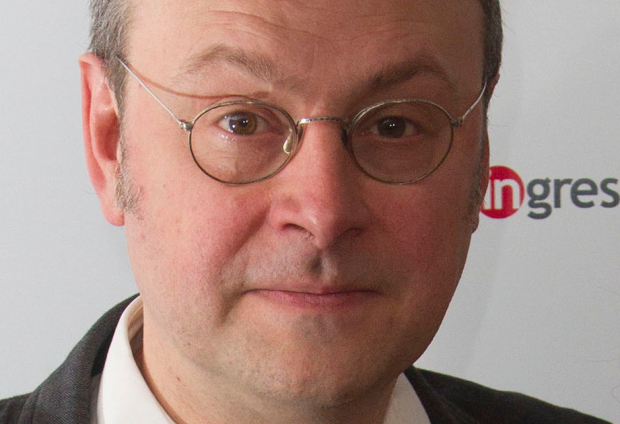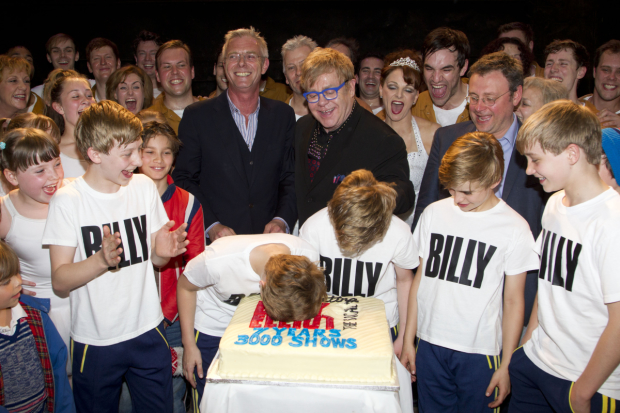Lee Hall: ‘Billy Elliot is even more relevant now than when we made it’

© Dan Wooller
Congratulations on the tenth anniversary of Billy Elliot – The Musical. Did you ever imagine at the beginning it would last a decade?
The longevity of any piece of theatre is always an unaccountable mystery so no one I know ever dares the hubris to imagine much past the press night. Indeed we were making major changes to the show right until the day before we opened. Getting anything right is so hard. But we were always trying to make something populist and true to our vision that theatre can be political, moving and entertaining all at the same time. But none of us would have predicted it would be one a whole decade later.
Do you think the show has changed in terms of resonance over that time?
The major change in how the story resonates with an audience really came between making the film and the musical. When I started writing the screenplay there were still the vestiges of an industry. By the time we put the story on stage it was clear we were making an elegy – not only for the coal industry but for a whole way of life and thinking which the close-knit community of Easington represents. Unfortunately the economic crisis and the attacks on the poorest in our country by the Coalition over the last five years have made the themes more immediate and more resonant. The current Tory party are actually going to go even further than the Thatcher government in attacking ordinary working class people. So I do think it's actually more relevant than when we made it – but I'm not sure that's entirely a good thing!
What are you favourite memories of working on Billy?
I loved writing the songs with Elton. I remember being woken up in the middle of the night by Elton ringing from Atlanta when he'd written the first song. He played it down the phone which seemed pretty surreal at the time, but I quickly got used to it. Peter Darling, Stephen Daldry and I spent months sitting round my kitchen arguing over every beat of the show – all of which changed completely once we got into the rehearsal room, and I remember the very first performance which was so long it was well after 11 o'clock when the curtain came down.

© Dan Wooller
Several high profile screen-to-stage musicals have struggled recently – what do you think is the key to success?
I think Billy worked because the creative team who made the movie were the same creative team who made the theatre show. It did help that Stephen is one of the finest theatre directors in the world and Peter Darling is a genius. But there was not an ounce of cynicism. This wasn't a job for any of us. Everyone was incredibly passionate about it. We all felt this was 'our' story and so many brilliant people who were at the top of the game all miraculously came together at the same time. And crucially the producers really let us take our time. So I think the key was we were trying to make an original piece of theatre. None of us thought of it as a transfer from another medium.
You must get a lot of reaction from people who've seen the show – what are your favourites?
I suppose meeting young boys who went into dance because they were directly inspired by the show takes some beating. But I also remember two ex-miners from Easington managing to blag their way past the stage door keeper on Broadway. We found them wandering around the set. They looked at Ian McNeil's recreation of their Welfare Hall and noticed that Ian had kept the spelling mistakes on the Bar Tarrif that they remembered from the actual hall back home. Somehow them being there helped me realise how important theatre can be in representing lives that might otherwise be excluded or forgotten.
Shakespeare in Love recently won a WhatsOnStage Award. Were you proud of the show's run?
I was incredibly proud of Shakespeare in Love. It was a joy to work on. I have been in awe of Declan Donnelan and Nick Omerod since I was a student so I was thrilled to work with them. And I had to keep pinching myself when I was sitting with Tom Stoppard at his kitchen table working on the script. It's not often that writers get to work with other writers, let alone with a legend like Tom. It was such a privilege to be around such brilliant people who've dedicated their lives to theatre, especially on a show which was a collective love letter to the mysteries of the Playhouse. It was lovely that it was met with such an enthusiastic response. It was only afterward that I realised how crazy it was to try to recreate the success of such a well loved film. But it worked – so I am incredibly grateful to Tom for letting me be involved.
What can you tell us about other upcoming projects?
I am about to start rehearsals on a play I've written for a co-production between The National Theatre of Scotland and Live Theatre, Newcastle based on Alan Warner's brilliant novel The Sopranos. It's called Our Ladies of Perpetual Sorrow and is about a choir of Catholic schoolgirls who go on a trip to Edinburgh and basically 'go mental'. It's hilarious. It's a project I initiated with Vicky Featherstone when she was artistic director there and Laurie Samson is having Vicky back to direct. We've been working with the amazingly talented Martin Lowe to add a load of music to the piece. We open during the Edinburgh Festival at the Traverse Theatre, tour in Scotland and end up at Live Theatre in Newcastle – which is my 'theatrical home'. So I'm very excited.
Billy Elliot – The Musical celebrates its tenth birthday with a star-studded gala at the Victoria Palace Theatre tonight (12 May 2015). The show has just announced it will tour the UK from February next year.










